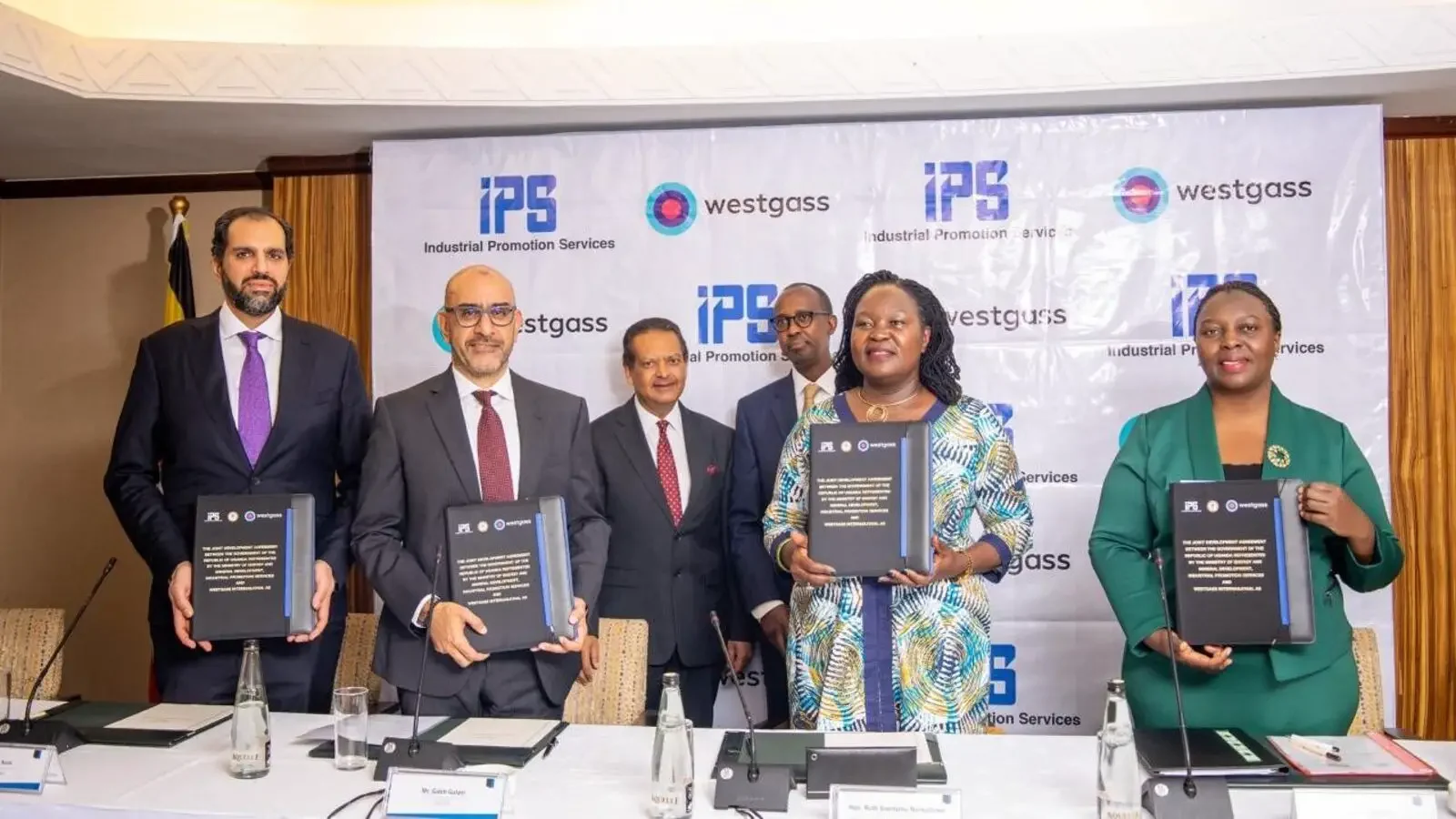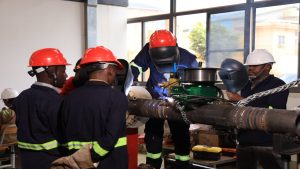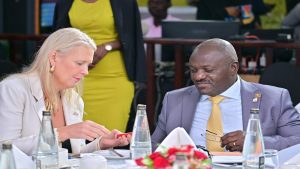Share
The Ugandan government has inked a Joint Development Agreement for a green hydrogen-based fertilizer plant with Industrial Promotion Services (Kenya) Limited (IPS) and Westgass Internasjonal AS (Norway) in an effort to support sustainable agriculture and lessen dependency on imports.

The plant will be positioned to take advantage of its close vicinity to the 600 MW Karuma Hydropower Plant in Karuma, Kiryandongo District, within the Bunyoro sub-region. To further this ground-breaking initiative, the Ugandan government, through the Ministry of Energy and Mineral Development (MEMD), has pledged a minimum 100 MW supply from Karuma HPP. On behalf of the government, Energy Minister Dr. Ruth Nankabirwa Ssentamu signed.
The Presidential Advisory Committee for Exports and Industrial Development (PACEID) is facilitating the project, which aims to increase domestic fertilizer production, enhance food security, and provide farmers with economic prospects. Westgass Internasjol AS, a Norwegian expert in green energy, and IPS, the infrastructure and industrial development branch of the Aga Khan Fund for Economic Development (AKFED), a component of the Aga Khan Development Network (AKDN), will co-manage the project.
“Uganda is adopting green technology to revolutionize its agriculture industry and emerge as a leader in sustainability in the region,” Dr. Nankabirwa stated. “This project will catalyze Uganda’s green hydrogen economy, fostering innovation in mobility, power generation, oxygen production, and other key sectors, in addition to empowering farmers and reducing dependency on imported fertilizers.”
The governments of Norway and Britain, two of the world’s leading proponents of green projects, have provided crucial backing for this endeavor. Through a shared platform, IPS collaborates with British International Investment (BII), while Westgass collaborates with Norfund, the Norwegian development financing organization.
“IPS is thrilled to collaborate with the Ministries of Agriculture and Energy and Mineral Development and support PACEID,” stated IPS CEO Galeb Gulam. The various goals of this initiative will help to advance sustainable agriculture and low-carbon economic development.
The PACEID chairman, Odrek Rwabwogo, stressed how the project will help Uganda achieve its export objectives. By leveraging Uganda’s abundant natural resources and cutting-edge technologies, this project aims to advance the agriculture sector in the direction of the ambitious $6 billion export goal. PACEID’s mission is to support agricultural firms by increasing export capacity, investigating market opportunities, and creating a favorable climate that will ultimately benefit farmers, rural communities, and the country as a whole.
“This project is a good example of how Norwegian public and private financing come together to fund bankable and sustainable projects that will have a long-lasting impact on Uganda’s economy,” stated Norwegian Ambassador Anne Kristin Hermansen. “With substantial investment from Norfund, Norad, and Westgass Internasjonal AS, this investment as it aligns with our Government’s priorities of improving Uganda’s food security while utilizing the country’s renewable energy resources.”
The goal of this cooperative endeavor is to create a resilient, sustainable agricultural future that will help Ugandan farmers and the country’s economy in the long run. It reveals the Ugandan government’s steadfast dedication to improved food security and import substitution. “We will address national food and income security, reduce fertilizer imports, and generate jobs through our sustainable approach. Kinar Kent, CEO of Westgass, continued, “This partnership exemplifies Uganda’s focus on ecological responsibility and economic success.”
This strategic alliance represents a major advancement in the search for environmentally friendly fertilizer production methods. An innovative method is being developed to produce fertilizers that maximize crop yields while reducing environmental effect by utilizing green hydrogen. This cooperative effort also signals a common dedication to promoting innovation and tackling urgent global issues, ushering in a new era of conscientious resource management and farming methods.









